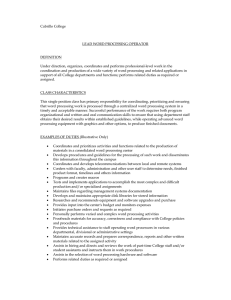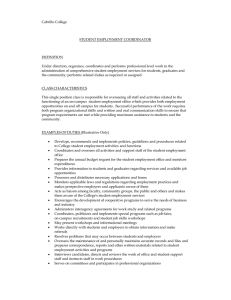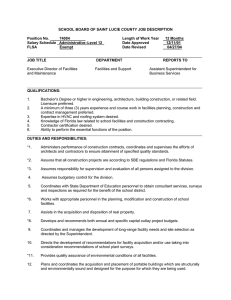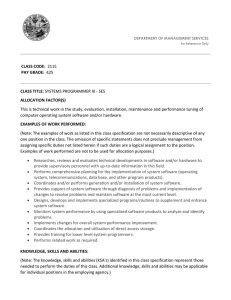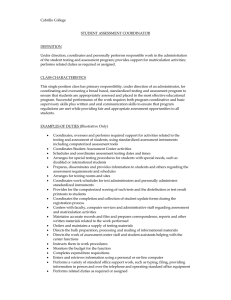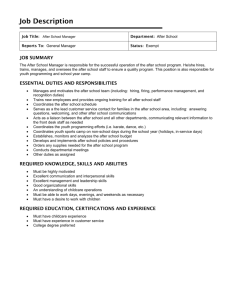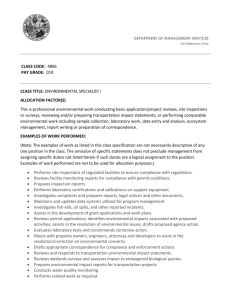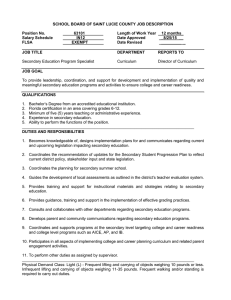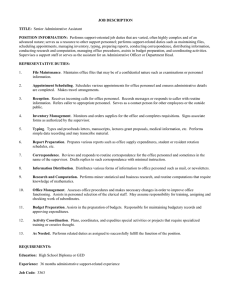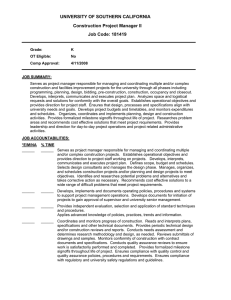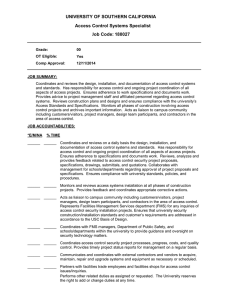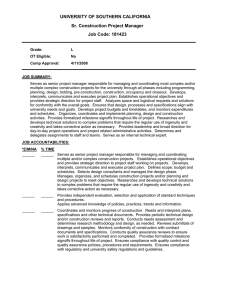Cabrillo College COMMUNITY EDUCATION COORDINATOR DEFINITION
advertisement
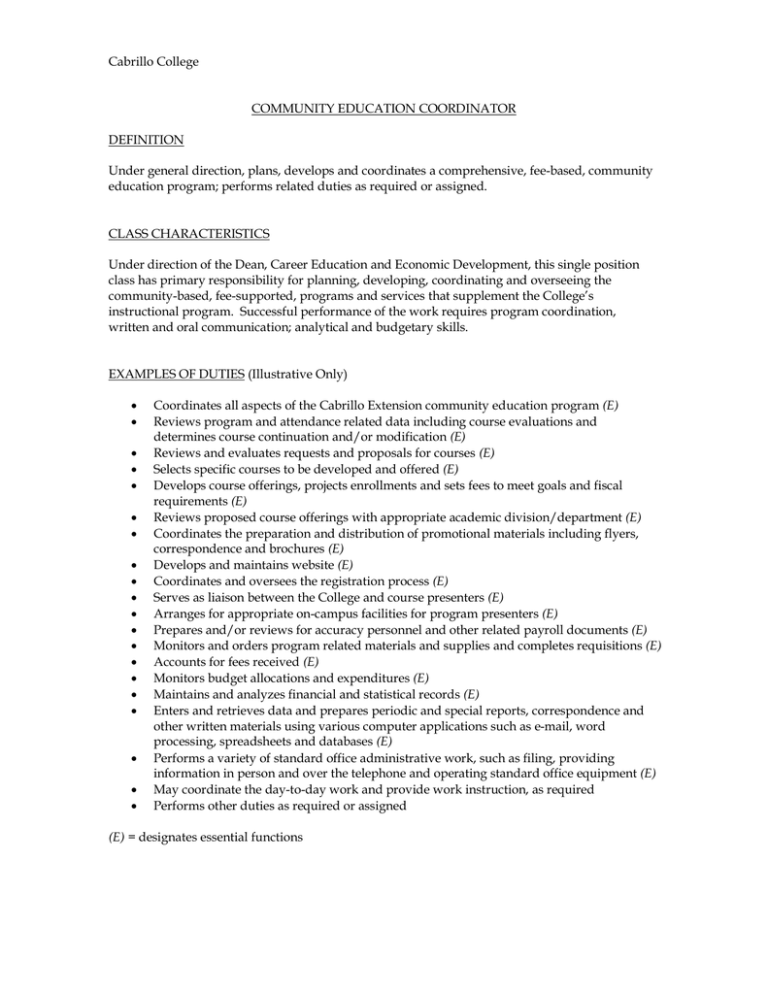
Cabrillo College COMMUNITY EDUCATION COORDINATOR DEFINITION Under general direction, plans, develops and coordinates a comprehensive, fee­based, community education program; performs related duties as required or assigned. CLASS CHARACTERISTICS Under direction of the Dean, Career Education and Economic Development, this single position class has primary responsibility for planning, developing, coordinating and overseeing the community­based, fee­supported, programs and services that supplement the College’s instructional program. Successful performance of the work requires program coordination, written and oral communication; analytical and budgetary skills. EXAMPLES OF DUTIES (Illustrative Only) · · · · · · · · · · · · · · · · · · · · Coordinates all aspects of the Cabrillo Extension community education program (E) Reviews program and attendance related data including course evaluations and determines course continuation and/or modification (E) Reviews and evaluates requests and proposals for courses (E) Selects specific courses to be developed and offered (E) Develops course offerings, projects enrollments and sets fees to meet goals and fiscal requirements (E) Reviews proposed course offerings with appropriate academic division/department (E) Coordinates the preparation and distribution of promotional materials including flyers, correspondence and brochures (E) Develops and maintains website (E) Coordinates and oversees the registration process (E) Serves as liaison between the College and course presenters (E) Arranges for appropriate on­campus facilities for program presenters (E) Prepares and/or reviews for accuracy personnel and other related payroll documents (E) Monitors and orders program related materials and supplies and completes requisitions (E) Accounts for fees received (E) Monitors budget allocations and expenditures (E) Maintains and analyzes financial and statistical records (E) Enters and retrieves data and prepares periodic and special reports, correspondence and other written materials using various computer applications such as e­mail, word processing, spreadsheets and databases (E) Performs a variety of standard office administrative work, such as filing, providing information in person and over the telephone and operating standard office equipment (E) May coordinate the day­to­day work and provide work instruction, as required Performs other duties as required or assigned (E) = designates essential functions Community Education Coordinator Page Two QUALIFICATIONS Knowledge of: · · · · · · · Basic principles and practices of program organization and administration, quality improvement, project management, and time management Basic budgetary and financial record keeping principles and practices Correct English usage, spelling, grammar and punctuation Business Mathematics Standard office practices and procedures, including filing and the operation of standard office equipment Techniques for dealing with people of diverse academic, ethnic, socioeconomic and cultural backgrounds Internet search techniques Skill in: · · · · · · · · · · · Coordinating complex sequences of interdependent activities Interpreting, applying and explaining rules, regulations and procedures Organizing work, setting priorities and meeting critical deadlines Writing and editing concise and compelling course descriptions Composing , assembling, proofing, and overseeing production of print and web­based documents Exercising sound judgment within procedural guidelines Establishing and maintaining accurate records, files and databases Using word processing, spreadsheets, databases, e­mail and website management software Operating a keyboard with sufficient speed and accuracy to enter data into a word processor or computer and producing correspondence or reports in a timely manner Establishing and maintaining effective working relationships with those contacted in the course of the work Analyze problems, evaluate alternatives and make programmatic recommendations given conflicting demands and deadlines Desirable: · Familiarity with community education or similar fee­based programs Education and Experience: A typical way of gaining the knowledge and skills outlined above is: Equivalent to an associate’s degree and two years of program coordination experience. Applicable college­level course work may be substituted for the experience on a year­for­ year basis to a maximum of one year. Established: July 2002 Revised: October 2006
